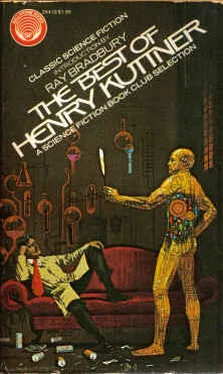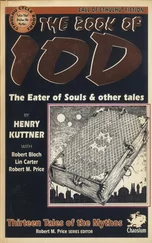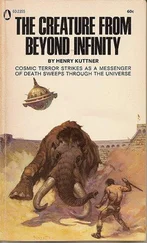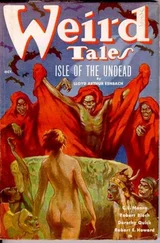Locke glared at the screen. “What the devil do you mean?”
“Just be careful,” Ryan said. “I believe in the mutant theory, after running this Crèche for fifteen years.”
“I was a child genius myself,” Locke repeated.
“Uh-huh,” Ryan said, his eyes intent. “I wonder if you know that the mutation’s supposed to be cumulative? Three generations ago, two percent of the population were child geniuses. Two generations ago, five percent. One generation-a sine curve, Brother Locke. And the I.Q. mounts proportionately.
Wasn’t your father a genius too?”
“He was,” Locke admitted. “But a maladjusted one.”
“I thought so. Mutations take time. The theory is that the transition is taking place right now, from homo sapiens to homo superior.”
“I know. It’s logical enough. Each generation of mutations-this dominant mutation at least-taking another step forward till homo superior is reached. What that will be—”
“I don’t think we’ll ever know,” Ryan said quietly. “I don’t think we’d understand. How long will it take, I wonder? The next generation? I don’t think so. Five more generations, or ten or twenty? And each one taking another step, realizing another buried potentiality of homo, until the summit is reached.
Superman, Joel.”
“Absalom isn’t a superman,” Locke said practically. “Or a superchild, for that matter.”
“Are you sure?”
“Good Lord! Don’t you suppose I know my own son?”
“I won’t answer that,” Ryan said. “I’m certain that I don’t know all there is to know about the quizkids in my Crèche. Beltram, the Denver Crèche supervisor, tells me the same thing. These quizkids are the next step in the mutation. You and I are members of a dying species, Brother Locke.”
Locke’s face changed. Without a word he clicked off the televisor.
The bell was ringing for his next class. But Locke stayed motionless, his cheeks and forehead slightly damp.
Presently, his mouth twisted in a curiously unpleasant smile, he nodded and turned from the televisor…
He got home at five. He came in quietly, by the side entrance, and took the elevator upstairs.
Absalom’s door was dosed, but voices were coming through it faintly. Locke listened for a time. Then he rapped sharply on the panel.
“Absalom. Come downstairs. I want to talk to you.”
In the living room he told Abigail to stay out for a while. With his back to the fireplace, he waited until Absalom came.
The enemies of my lord the king, and all that rise against thee to do thee hurt, be as that young man is…
The boy entered without obvious embarrassment. He came forward and he faced his father, the boy-face calm and untroubled. He had poise, Locke saw, no doubt of that.
“I overheard some of your conversation, Absalom,” Locke said. “It’s just as well,” Absalom said coolly. “I’d have told you tonight anyway. I’ve got to go on with that entropic course.”
Locke ignored that. “Who were you vising?”
“A boy I know. Malcolm Roberts, in the Denver quizldd Crèche.”
“Discussing entropic logic with him, eh? After what I’d told you?”
“You’ll remember that I didn’t agree.”
Locke put his hands behind him and interlaced his fingers. “Then you’ll also remember that I mentioned I had legal control over you.”
“Legal,” Absalom said, “yes. Moral, no.”
“This has nothing to do with morals.”
“It has, though. And with ethics. Many of the youngsters-younger than I-at the quizkid crèches are studying entropic logic. It hasn’t harmed them. I must go to a crèche, or to Baja California. I must.”
Locke bent his head thoughtfully.
“Wait a minute,” he said. “Sorry, son. I got emotionally tangled for a moment. Let’s go back on the plane of pure logic.”
“All right,” Absalom said, with a quiet, imperceptible withdrawal.
“I’m convinced that that particular study might be dangerous for you. I don’t want you to be hurt. I want you to have every possible opportunity, especially the ones I never had.”
“No,” Absalom said, a curious note of maturity in his high voice. “It wasn’t lack of opportunity. It was incapability.”
“What?” Locke said.
“You could never allow yourself to be convinced I could safely study entropic logic. I’ve learned that. I’ve talked to other quizkids.”
“Of private matters?”
“They’re of my race,” Absalom said. “You’re not. And please don’t talk about filial love. You broke that law yourself long ago.”
“Keep talking,” Locke said quietly, his mouth tight. “But make sure it’s logical.”
“It is. I didn’t think I’d ever have to do this for a long time, but I’ve got to now. You’re holding me back from what I’ve got to do.”
“The step mutation. Cumulative. I see.”
The fire was too hot. Locke took a step forward from the hearth. Absalom made a slight movement of withdrawal. Locke looked at him intently.
“It is a mutation,” the boy said. “Not the complete one, but Grandfather was one of the first steps.
You, too-further along than he did. And I’m further than you. My children will be closer toward the ultimate mutation. The only psychonamic experts worth anything are the child geniuses of your generation.”
“Thanks.”
“You’re afraid of me,” Absalom said. “You’re afraid of me and jealous of me.”
Locke started to laugh. “What about logic now?”
The boy swallowed. “It is logic. Once you were convinced that the mutation was cumulative, you couldn’t bear to think I’d displace you. It’s a basic psychological warp in you. You had the same thing with Grandfather, in a different way. That’s why you turned to psychonamics, where you were a small god, dragging out the secret minds of your students, molding their brains as Adam was molded. You’re afraid that I’ll outstrip you. And I will.”
“That’s why I let you study anything you wanted, I suppose?” Locke asked. “With this exception?”
“Yes, it is. A lot of child geniuses work so hard they burn themselves out and lose their mental capacities entirely. You wouldn’t have talked so much about the danger if-under these circumstances-it hadn’t been the one thing paramount in your mind. Sure you gave me my head. And, subconsciously, you were hoping I would burn myself out, so I wouldn’t be a possible rival any more.”
“I see.”
“You let me study math, plane geometry, calculus, non-Euclidean, but you kept pace with me. If you didn’t know the subject already, you were careful to bone up on it, to assure yourself that it was something you could grasp. You made sure I couldn’t outstrip you, that I wouldn’t get any knowledge you couldn’t get. And that’s why you wouldn’t let me take entropic logic.”
There was no expression on Locke’s face.
“Why?” he asked coldly.
“You couldn’t understand it yourself,” Absalom said. “You tried it, and it was beyond you. You’re not flexible. Your logic isn’t flexible. It’s founded on the fact that a second-hand registers sixty seconds.
You’ve lost the sense of wonder. You’ve translated too much from abstract to concrete. I can understand entropic logic. I can understand it!”
“You’ve picked this up in the last week,” Locke said.
“No. You mean the rapports. A long time ago I learned to keep part of my mind blanked off under your probing.”
“That’s impossible!” Locke said, startled.
“It is for you. I’m a further step in the mutation. I have a lot of talents you don’t know anything about. And I know this-I’m not far enough advanced for my age. The boys in the crèches are ahead of me. Their parents followed natural laws-it’s the role of any parent to protect its young. Only the immature parents are Out of step-like you.”
Читать дальше







